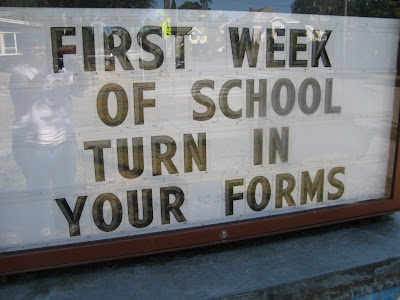It is often clear to the parents of children in our 3's/4's classrooms and in our Pre-K classroom that we are clearly using Montessori tools to invite their children into the wonderful world of learning, but sometimes that may not be so clear to the families of our youngest children. So I
wanted to take a moment and just take a peek into that classroom to see what, if anything, Montessori was going on...
At the very beginning, even if we are not using a Montessori designed learning tool, such as a spindle box, or a color wheel, we are taking the first steps toward introducing our youngest friends to an environment that is designed much like the environments of their older friends or siblings in the other (older) classrooms.
There are spaces designated for use by just one student, with toys, or games or puzzles laid out on a carpet square to designate space for one.

There are opportunities to play and share a space with just one friend at a time.
And there are opportunities to play in small groups, too. These areas are closely monitored by the teachers, allowing students to have this experience, but making sure it is a positive experience for all who choose to participate. If it's not working out in this bigger play group area for a particular friend, then the teacher can choose to redirect that child to one of the other options that allow for more individual play.

(Notice Zadie's carefully lined up shapes from the bucket before she left this area to investigate the other possibilities in the room!)
All of these seemingly small details are giant stepping stones in this first classroom. First and foremost for our youngest friends is the hard and serious work of being in a classrooms with friends and teachers for 2 hours without their primary caregiver (mom, dad, grandma or nanny). To manage this big task - to be dropped off and then manage their bodies and their emotions and ENJOY their experience - is our greatest work in this first tender year.
In addition, with their routine, schedule and room set up all mirroring the older classrooms, our friends are getting a solid leg up on their start with some of the more formal Montessori learning opportunities awaiting them in the years to come!






